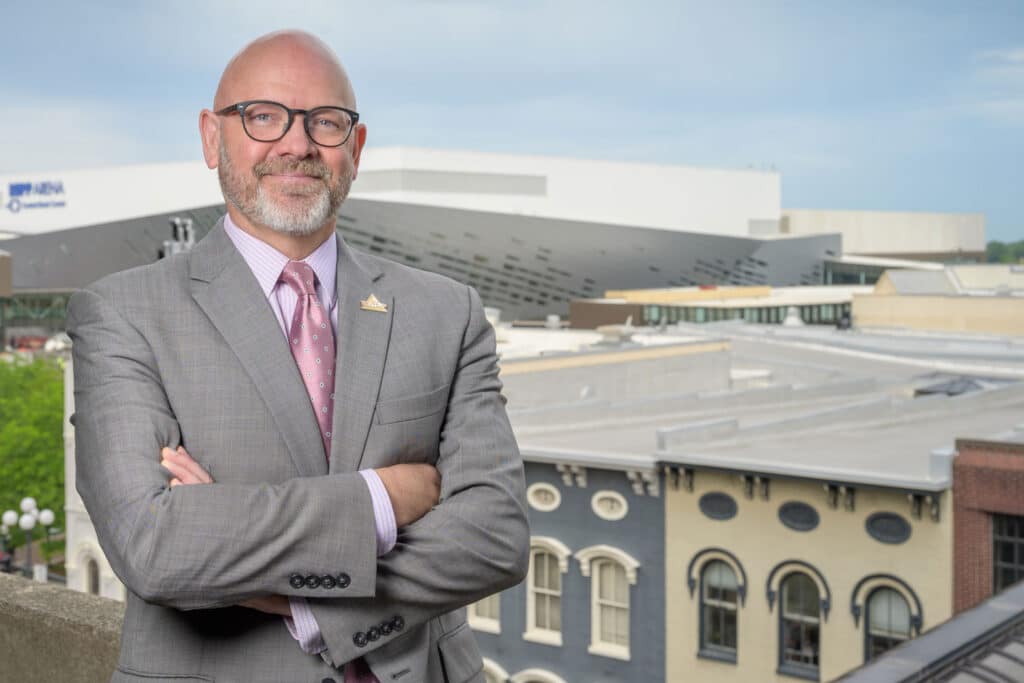Building Bridges
Get to Know IPMI Board Chair
Gary A. Means, CAPP
Gary A. Means, CAPP, brings a unique style of servant leadership to IPMI to bridge the divide between the innovation that is driving unprecedented change, and the foundations of traditional parking fundamentals that still need a strong champion.
When you ask Gary Means, CAPP, about his childhood, he smiles in that way he has that tells you to sit back and relax, because he has a story to tell you. Gary grew up as a self-proclaimed “air force brat” whose father served our country for 26 years, and typical of the military life he moved around a lot. While the years he spent moving from place to place taught him valuable lessons that would serve as the foundation of who he would become, those are not the memories Gary speaks of most fondly. Instead, he tells a story of walking around on base with his dad, a non-commissioned officer who worked his way up from an enlisted aircraft mechanic to a leader of a team of 250 men and women maintaining B-52 bombers. Gary describes with clear pride how the men on base—from airman to captains and colonels—respected and admired his father, who had earned his rank through hard work and determination.
Table of Contents
Gary has followed closely in those large footsteps, working his way through the ranks of the parking industry with that same dedication to hard work and determination to succeed. He has earned that same respect and admiration from those around him. As Gary takes the helm of IPMI as Chair of the Board of Directors, and he does so at a time of great change in the parking and mobility industry. There can be no better leader in a time of change than one who has lived a life of adaption, for whom change offers possibility and opens doors for progress. As his story unfolds, it becomes clear that Gary is that leader.
Early Days
Born in Little Rock, Arkansas, Gary first moved with his military family to Okinawa, Japan at age five. This was followed by moves to Illinois, Texas, and Korea before moving back permanently stateside. After a few years in North Dakota, the Means family returned to their country roots and settled in Kentucky, where they had family.
“Moving around was challenging, but an adventure,” he says. “It taught me how to roll with change, embrace it even. Every move brought new opportunities. Looking back now, I know that my moving from place to place allowed me to be open to appreciating other cultures and ways of life. It also taught me to make friends quickly.” Gary points to the move from Korea to North Dakota during his high school years the one he remembers most. “We did not have internet back then, so it was impossible to keep up on everything going on in the states. Let’s just say I was a little behind the times when I moved back to the U.S., having gotten all my information on current trends from old television reruns!”
But as he always did, Gary adapted. His ability to roll with change and embrace whatever culture he found himself in has served him well over the years and continues to be a key factor in his professional success today. “The world of parking and mobility is constantly changing, and it is evolving now faster than ever. I look at these changes the same way I did when I was younger and moving around from place to place—change is challenging, but an adventure.”
I Want My MTV
Gary’s college years yielded no indicators that his future would be as a leader in the parking world; in fact, Gary is a rocker at heart. MTV launched as Gary was entering college, and music has always been, and remains to this day, a very big part of his life. With dreams of a career making music videos, Gary chose to major in Broadcasting at Eastern Kentucky University. He was passionate about the editing, lighting, set design, and other behind the scenes aspects of production. Gary also played in two Christian rock bands during his college years—Journey’s End in North Dakota and Shophar in Kentucky. “It was a really fun era of my life. I still play today—I play bass every other week for my church. I am still a rocker at heart.”
Steps Along the Way
It is a famous saying in the parking industry that no one sets out to get into parking, they just “fall” into it. Gary says his journey is a little bit less like a “fall” as he was already working in property management when we took his first position in parking, so it was sort-of an intentional step sideways. Gary was the maintenance director for Fayette Mall, at that time the largest shopping mall in Kentucky, when he answered an ad for an operations manager position for Central Parking System (CPS). Thus began his parking journey.
It was not an easy road. “People in this industry have to wear a lot of hats. There is a lot of stress, a lot of long hours. Even though I was management, I sat in booths when I needed to. At 7:00 a.m. in my suit I reached my arms up inside the gate equipment trying to fix it, then cleaned myself up for an 8:00 a.m. meeting. You did it all, you just did what you needed to do. I learned by doing, that’s how I was brought up in the industry.”

“This is my profession. I am a parking professional. I help solve problems.”
Gary A. Means, CAPP
In the beginning, Gary admits that parking was just a job for him. His excitement and commitment to the parking world ebbed and flowed over the first few years, but then something happened that caused it to click for him. In his words, he “got bit” the first time he had the chance to network with other industry professionals en masse (Jim Corbett, CAPP, now Director of Studies with Walker Consultants, was at that same CPS meeting!) “The first time you get with people who do what you do from other cities and other companies, and you have that chance to network, it creates a real impact. Hearing their stories, bouncing ideas off them, listening to how they solved problems, and sharing my knowledge with them, I was like—YOU GET ME. I just loved it; it was amazing. That was when it really clicked for me: this is my profession. I am a parking professional. I help solve problems.”
LEXPARK

In some ways the organization is traditional—they have both meters and garages and manage residential permit parking. Gary is quick to point out that LEXPARK was an early adopter of a mobile payment app as well as real-time space count signage, and over-all they have been very quick to adopt new technology solutions if they benefit their consumers. As always, Gary’s attitude of embracing change trickles down from the top.

In other ways, they are different than most parking authorities. “What we do that is different than some is that we outsource almost all of our program, relying on a parking operator to help us do what we do,” he said. “Our philosophy is that they are providing on-going pre-consulting. They are constantly bringing in new ideas and advising on programs that are working in other places, making sure we are always offering the best available programs.”
Implementing this model allows Gary and his team to work at higher level, remain visionary, and focus on budget and asset management versus day-to-day operations. It is a model that has yielded significant success for LEXPARK and its constituents. Under Gary’s leadership, LEXPARK strives to partner with their operators and vendors, and structures their contracts to motivate them to generate revenue by finding ways to collect and save money. This benefits the organization, the vendors, and most importantly, the users of LEXPARK’s facilities and services.
The LEXPARK Board of Directors is a continuation of that partnership. The Board is made up of citizens from the community who direct the organization towards the needs of the everyday users; staff who are parking and mobility professionals that stay on the cutting edge of the industry and attend conferences and training to ensure their knowledge and expertise stay current; and the operator, who performs their same tasks in other cities as well and brings all that knowledge to the table. Under Gary’s direction, the organization is continuously gaining efficiencies through this pool of shared knowledge, allowing for better, safer, and more cost-effective maintenance of their facilities.
Under Gary’s leadership, LEXPARK has undertaken some impactful community initiatives that go far beyond simple parking operations. Since 2014, the holiday season in Lexington brings the “Food for Fines” program, where constituents can use canned goods to pay their parking fines, allowing them to help others while they are satisfying their obligations. There are also community-facing efforts, including the award-winning decorative lighting on one of the organization’s older garages to improve the aesthetics and make it more appealing for those in the community that see it daily. The colors can be programmed to any combination and are often programmed to bring awareness to non-profit causes around the globe. When recent events left minority members of the community feeling voiceless, LEXPARK spearheaded an effort to have a Black Lives Matter mural painted on one of their facilities to let them know that they were seen and heard.

“If there is anything going on in a downtown, it is smart to have a parking and mobility professional at the table. Commercial developments need efficient parking to succeed. If residential components are being considered, you need to have parking. If you are thinking of entertainment, you need to consider parking. If you are looking at how restaurants can function better, you need to examine parking. Parking professionals need to be at the tables for these big conversations. I have been at the table with the developers, the bankers, the university presidents, the city leaders; playing a role in making decisions that has helped our community evolve has brought me huge satisfaction. We bring value, we make an impact on success.”
Gary A. Means, CAPP
IPMI Leadership
Gary considers himself to be “just Gary.” He is never the loudest in the room, or the one that stands out the most from the crowd. In fact, many say that Gary is a quiet, contemplative guy. But don’t let that quiet fool you. Behind the quiet demeanor, there is a force brewing. Gary’s talent is his ability to listen, process, plan, and engage.
“This industry, especially IPMI, has given me so much, provided me with so much—be it networking, education—that I have always wanted to give back,” he said.
Gary became an active participant in IPMI, was active in SRAs, joined several committees, and was then asked to chair them. He became a CAPP in the infamous CAPP Class of 2010 and developed a reputation as someone who made people of all backgrounds feel welcome, who was a good listener, a moderator and bridge-builder, and a thought leader with exceptional industry knowledge. Even with this excellent reputation, Gary was hesitant to run for the board. In his mind, he was still “just Gary.”
He credits several mentors in IPMI for pushing him to participate in leadership, and to eventually run for the board of directors. In particular, Casey Jones, CAPP, and Kim Jackson, CAPP, were both big influences on his decision to move into a leadership role. With their urging, and support from a large community of those who interacted with and grew to respect Gary over the years, he ran for the board in 2015 and was successful his first time out. Now, in 2022, he has reached the pinnacle as Chair.
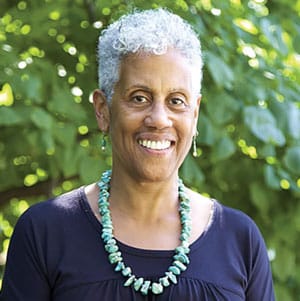
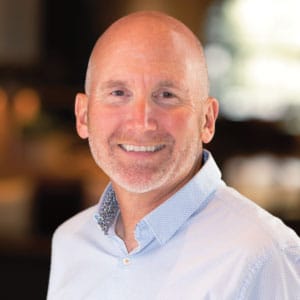
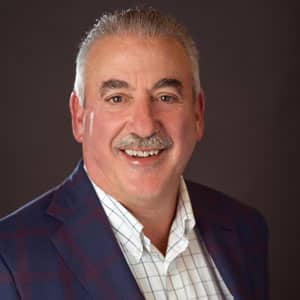
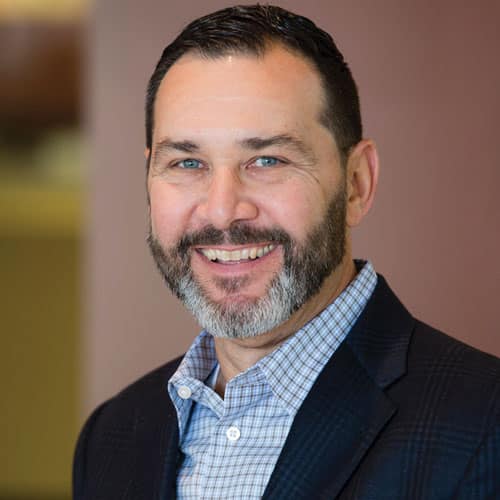
The Future of the Organization
The parking and mobility industry has reached a convergence of older technologies and ways of thinking with an unprecedented influx of new technology and very modern thinking; parking and mobility professionals are left with trying to make a functional reality of that convergence at the curb, within the transit system, and in the parking facilities. The juxtaposition of the old and the new is causing a gap, and Gary sees IPMI’s role as serving as to help bridge that gap.
Acknowledging the speed at which the industry is evolving, Gary contends that it is IPMI’s job to keep up with the evolution while not losing sight of the basic and fundamental needs of our parking members. “We are moving fast into transportation and mobility, and there are some cities that are way more advanced on that transportation and mobility front than others. But there are so many cities and towns that still need basic parking fundamentals: how to do meters, parking enforcement, training enforcement officers, just basics. There are still communities rolling out paid parking for the first time, and we don’t want to forget them! They are not the past. They need IPMI and our resources, and I am going to make sure that we are still focused on parking. That we are still talking about parking, and that we are still teaching and learning about parking,” he said. “Mobility hubs, charging, EV, AV—all of it is vital to today’s conversations. But we won’t leave parking behind. We will continue to provide resources and educate the community and our members on best practices for parking.”
This continued focus comes in conjunction with a dedication to education in the emerging EV, AV, and mico-mobility sectors. Gary’s commitment to placing IPMI at the center of all things parking and mobility sees the organization bridging the traditional and the innovative, the fundamental and the futuristic.
Gary has some lofty goals for the organization, both for his term as Chair and beyond. In terms of his leadership stye, he cites former IPMI Chairs Kim Jackson and Roamy Valera as role models for him: Kim in how she ran committees and how she got thing done, and Roamy in his experience and knowledge, and how he always managed to find a perfect balance between hard work and fun. Gary is also very respectful of outgoing Chair Dave Onorato’s leadership following a significant organizational name change and navigating the impacts of a worldwide pandemic. “Dave did a great job holding the family together!” he said.
A few measurable goals Gary has set include increasing the use of metrics and measurements to help in the planning and decision-making process, and continuing to increase program attendance, both on-line and in-person, to meet and then surpass IPMI’s pre-COVID numbers. The more people that participate in programs, the more members get to hear diverse perspectives and learn from a wide array of voices and experiences. Engagement is a tide that raises all ships.
Perhaps most important, though, Gary wants to make it his mission to ensure that people who are new to parking and mobility find not only a job here, but they also find a career and a home here. “Our goal is for members of the parking and mobility community to find IPMI, join as members, and then achieve success,” Gary said. “IPMI exists to help members achieve their goals. It is our hope that they become better at their jobs and an even bigger asset to their organizations and their communities thanks to the education, resources, and training that IPMI provides.” In particular, Gary is passionate about making sure everyone has an opportunity, and that minorities not only feel comfortable within IPMI, but are given the tools and resources they need to thrive within the parking and mobility industry.
To achieve these goals, Gary is hoping to continue IPMI’s successful partnership with other industry trade organizations including the U.S. Green Building Council, the CHARGE Coalition, and many others. He knows that operating in a silo is a barrier to innovation, and these partnerships allow our members to see how parking and mobility impact and are impacted by the systems they operate within.
When He’s Not in the Office…
Between his full-time job as Executive Director at LEXPARK and his other full-time job as Chair of the Board of Directors of IPMI, you would think there would not be enough hours in the day for anything else. Well, then you have not met Gary.
Besides playing in his church band every other weekend, Gary and his wife of 20 years, Missy, love to get away and spend time in the outdoors. They will go hiking, biking, kayaking, take trips to the beach, or work on outdoor projects at home. And while he loves the outdoor activities, Gary says his favorite pastime by far is spending time with his grandchildren, Nora and Charlie (children of son Jordan and wife Leslie), and Carleigh and Deakin (children of daughter Sumer and husband Dallas).

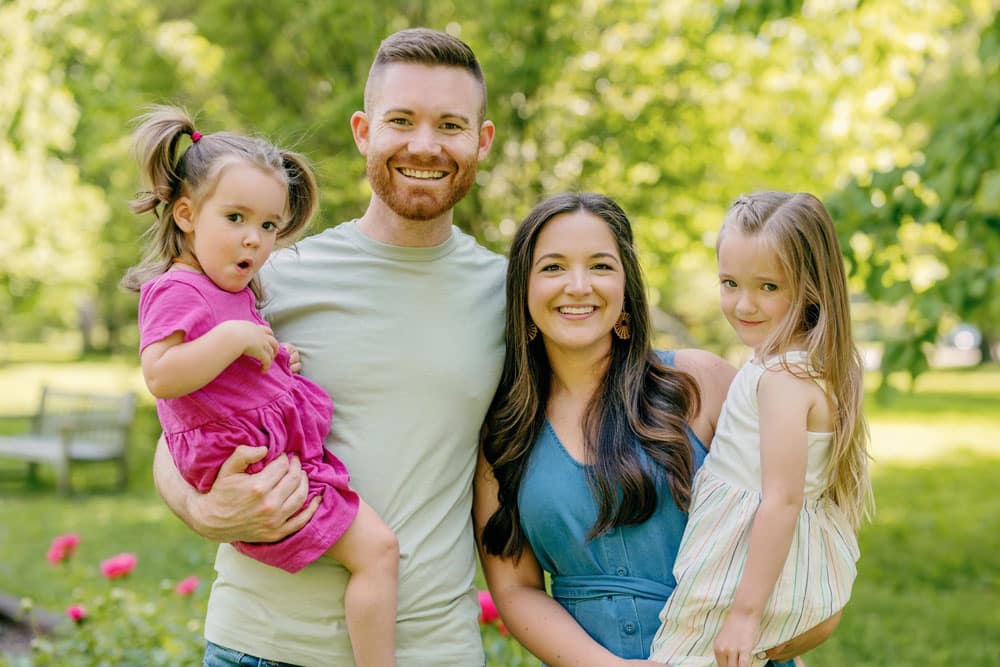

It’s About the People
At the end of the day, if you understand anything about Gary, understand this: for him, its all about the people. Serving as a bridge for those who need him, connecting their present to the future that is possible. As Chair, Gary plans to lead the Board to make all members of the parking and mobility community feel welcome, connected, included, and achieve success. And when you are lucky enough to spend any amount with Gary, he leaves you with no doubt that he will accomplish just that.

Melissa Rysak, CPSM, is the Director of Communications & Member Engagement for IPMI and the editor of Parking & Mobility magazine.
-
Melissa Rysak, CPSMhttps://parking-mobility-magazine.org/author/melissa-rysak-cpsm/February 3, 2022
-
Melissa Rysak, CPSMhttps://parking-mobility-magazine.org/author/melissa-rysak-cpsm/February 3, 2022
-
Melissa Rysak, CPSMhttps://parking-mobility-magazine.org/author/melissa-rysak-cpsm/March 4, 2022
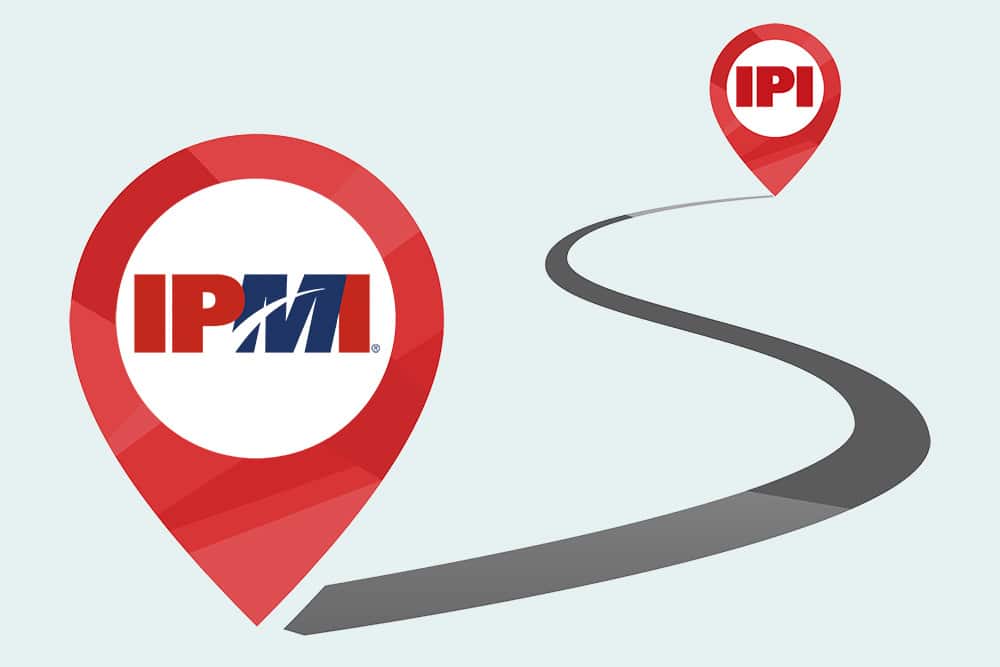

IPMI Charity Spotlight
Charity Spotlight IPMI has a long history of giving back
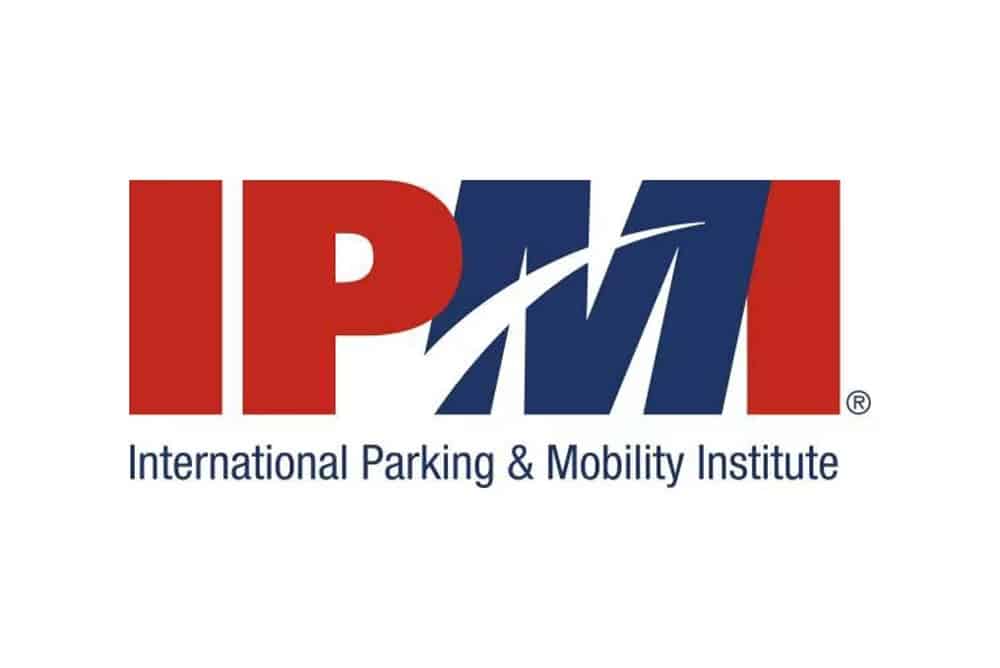
IPMI Announces 2023-2024 Board of Directors
New slate of directors takes effect following the IPMI Conference

